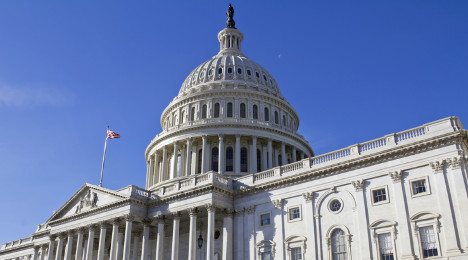During the past month, Reynolds and Reynolds added three more states to its network associated with Reynolds Document Services. Joining the ranks are New Mexico, Idaho and Kentucky.
Dealerships in 22 states can now access a comprehensive catalog of standardized, legally reviewed finance and insurance (F&I) documents.
“Based on industry trends during the first half of 2016, we expect automotive retailers will continue to be challenged by the increased demands of regulation,” said Jerry Kirwan, senior vice president and general manager of Reynolds Document Services.
“This suite of documents is designed to help dealers increase the efficiency of the F&I manager, streamline the F&I process, and create a smoother car-buying process for consumers,” Kirwan continued.
“Documents are regularly reviewed for compliance with the latest automotive regulations by Reynolds' industry-leading forms specialists alongside Reynolds' outside legal partners, helping dealers meet their compliance obligations and reduce their litigation risk,” he went on to say.
Kirwan also noted that this library of standardized documents is written in consumer-friendly language, which helps create a clearer, more efficient F&I process for the consumer. By increasing the efficiency of the F&I process, the overall consumer experience with the dealership can be improved.
In addition, the library also can help facilitate the conversion to laser-printed transactions or e-contracting, since the documents are available in both paper-based and electronic formats. Reynolds Document Services maintains licensing agreements with all major providers of electronic F&I (e-F&I) solutions.
“KADA is proud to be a part of this project with Reynolds Document Services. The LAW Kentucky F&I Library gives our dealer members the opportunity to improve day-to-day operations and customer service and increase overall efficiency in their dealerships," said Gay Williams, CAE, president of the Kentucky Automobile Dealers Association.
“We appreciate the level of expertise and effort Reynolds has put forth in creating this valuable tool. The program will also continue to offer forms that are specific to Kentucky and to KADA,” Williams continued.
Now along with New Mexico, Idaho and Kentucky, Reynolds has libraries for:
—Arkansas
—Arizona
—Oregon
—Colorado
—Tennessee
—Maryland
—North Carolina
—Louisiana
—Alabama
—Massachusetts
—Ohio
—California
—Illinois
—Pennsylvania
—West Virginia
—Washington
—Virginia
—Texas
—New Jersey
For the seventh consecutive year, the American Financial Services Association and the National Automobile Dealers Association co-sponsored an executive forum to discuss legislative, regulatory and operational challenges facing dealers and finance sources.
Led by David Paul, chair of AFSA’s Vehicle Finance Division and senior vice president with American Honda Finance Corp., and NADA chairman Jeff Carlson, the organizations highlighted that chief executive officers and other top executives from virtually every major finance company and major bank in the nation engaged in indirect auto financing attended the forum, along with the leaders of the nation’s franchised dealers.
Representatives from the American International Automobile Dealers Association, National Association of Minority Automobile Dealers, and Automotive Trade Association Executives also were in attendance, according the recap AFSA shared this week.
AFSA mentioned the forum featured an “engaging” discussion with Consumer Financial Protection Bureau director Richard Cordray, who reviewed the bureau’s activities in the area of vehicle financing and offered some insight on the path forward.
In a separate presentation, AFSA shared that Brian Johnson, senior counsel to the House Financial Services Committee, and Jelena McWilliams, chief counsel to the Senate Banking Committee, offered their perspectives on the important role vehicle financing plays in the American economy.
Marguerite Watanabe, president of Connection Insights, and Andy Koblenz, executive vice president at NADA, each reviewed the finance source and dealer survey results focusing on finance company and dealer concerns and opportunities.
“Top concerns for finance sources include exams and enforcement actions, cybersecurity, compliance, changes in vehicle values, and hiring, training and retaining employees,” AFSA said.
“Dealers are most concerned with new regulations from the FTC and CFPB, existing regulations and compliance, and hiring, training and retaining employees,” the association continued. “New opportunities focused on technology improvements and mobile financing options for lenders, and leasing and e-contracting for dealers.”
For the third time in the span of about a year, New York attorney general Eric Schneiderman announced a settlement with a dealership regarding either the advertising or the financing practices conducted by the store.
The most recent development is a settlement with Saratoga Springs Nissan, which operated a dealership in Malta, N.Y., under the name Saratoga Springs Nissan from May 2010 to September 2013. On Sept. 9, 2013, Saratoga Springs Nissan sold the dealership, which is now operated by new owners under the name Lia Nissan of Saratoga.
The settlement requires the former dealer to pay $101,986 in restitution to 119 consumers who were charged illegal fees and/or subjected to a variety of deceptive sales and advertising practices.
Schneiderman’s office explained that its investigation revealed that consumers were charged as much as $5,000 for warranties and service contracts without their authorization and induced to purchase and finance vehicles on terms they could not afford with false promises that the dealership would refinance their loans on more favorable terms after several months.
Officials indicated restitution amounts range from $198 for illegal fees charged to more than $4,000 for unauthorized warranties and services contracts. The settlement also requires the business to pay restitution to other consumers who come forward within the next three months and who were subjected to the deceptive and illegal practices uncovered by the investigation with a cap of $50,000.
“A consumer purchasing a car should be able to expect that when they negotiate prices and terms for vehicles, the contracts will accurately reflect those agreements,” Schneiderman said. “This settlement is a victory for New York consumers, and sends the message that car dealerships that take advantage of consumers by conning them into paying more for cars than they had agreed to will be held accountable.
“We will continue working to ensure that car dealerships throughout the state comply with the law,” he continued.
Schneiderman’s office certainly has been busy policing dealerships in the Empire State. Back in April, New York’s top law enforcement agent reached four separate settlements connected with 22 different rooftops in the New York City area for packaging credit repair and identity theft protection services into the vehicle installment contract; a similar practice landed other Big Apple stores in legal trouble almost a year earlier to the tune of more than $6 million.
The settlement with Saratoga Springs Nissan follows a May 2012 New York State Police raid and seizure of the dealer’s business records, which also resulted in the subsequent arrest and conviction of the dealership’s finance manager, Mark Moore, for second-degree scheme to defraud and third-degree criminal possession of a forged instrument.
Following the raid, Schneiderman’s office indicated that it received a “flood of complaints” from customers of the former dealership, which revealed a pattern of fraudulent, deceptive and illegal practices.
In addition to the practices previously described, the complaints revealed that the dealership had engaged in a variety of “bait and switch tactics,” including:
—Crediting consumers for less than the agreed-upon amount for vehicle trade-ins
—Charging consumers more for vehicles than promised
—Financing consumers’ purchases at higher interest rates than promised
—Executing leases that included a lower yearly mileage limit than promised.
“A number of consumers also alleged that their signatures had been forged on contract documents,” Schneiderman’s office said.
Involvement in VW settlement
Meanwhile, Schneiderman’s office also highlighted the portion of the settlements Volkswagen reached with federal regulators regarding the diesel vehicle emissions controversy.
The settlements will direct to New York more than $115 million for environmental projects to improve the state’s air quality, as well as more than $30 million in additional monetary recoveries for the state’s general fund.
Schneiderman added that he will continue an investigation into the scope of Volkswagen, Audi and Porsche’s illegal conduct and their liability for environmental penalties.
“The evidence reviewed so far concerning Volkswagen, Audi and Porsche points to a culture of corporate arrogance and conscious disregard for the rule of law and the rights of consumers,” Schneiderman said. “These partial settlements announced today exact a stiff price from Volkswagen for its deception of consumers and the environmental damage it has caused in New York and across the country.
“But make no mistake: We will continue to investigate and pursue Volkswagen for its violation of our environmental laws, and we will seek the imposition of additional penalties in amounts sufficient to ensure that Volkswagen and any other car manufacturer complies with the standards required of them,” he went on to say.
New York Department of Environmental Conservation commissioner Basil Seggos added, “These partial settlements are a positive step towards addressing Volkswagen’s deliberate so-called ‘clean diesel’ fraud of consumers, and state and federal regulators,”
“New York will continue to hold Volkswagen accountable for its violations of our state’s environmentally protective vehicle emissions regulations,” Seggos said.
A video recap of Schneiderman’s positions on the VW settlement can be viewed in the window at the top of this page or by going here.
Ally Financial has added a former General Electric executive to its own board of directors.
The company announced this week that William “Bill” Cary has been appointed to the Ally board of directors, filling the role left by Cerberus Capital Management’s Stephen Feinberg, who stepped down from the board effective June 22. Cary worked at GE in various capacities, such as president and chief operating officer, during his 29 years with the company.
“Bill is a seasoned financial services veteran with over 30 years of management and operating experience across many disciplines, including consumer and wholesale finance,” Franklin “Fritz” Hobbs, chairman of Ally, said in a news release. “His expertise and leadership will be a valued complement to the Ally board and management team."
Immediately before joining the Ally board, Cary served as the president and chief executive officer of GE Money in London. He also serves on the boards of BRP and Rush Enterprises.
Feinberg, in the release, said, “It has been a privilege to be part of Ally's unique journey, and I continue to believe in the company. After seven years of board service and many transformational efforts, this was a natural time to step down and let this highly talented board and capable management team lead the next chapter."
Hobbs said of Feinberg, “I want to thank Steve for his dedicated and passionate service on the Ally board. Steve has understood the vision and potential for Ally for many years and has offered invaluable leadership throughout the company's transformation. Today, Ally is in a position of strength with a clear plan to create value for shareholders.”
In other company news, Ally also mentioned that it will report its second-quarter results on July 26.
Reflecting the company’s ongoing mission of driving operational compliance for its dealership clients, EFG Companies appointed Steve Roennau as vice president of compliance this week.
EFG highlighted that Roennau brings a 30-year history of driving bottom-line results in automotive F&I, sales and product management, giving him strategic insight into the compliance hurdles facing both dealers and finance companies.
“Today’s dealers are facing a much greater level of compliance oversight, affecting everything from finance margins to advertising practices,” said John Pappanastos, president and chief executive officer of EFG Companies.
“Dealers need forward thinking partners who can successfully navigate the myriad of changes on local, state and federal levels,” Pappanastos continued. “With Steve leading our compliance initiative, we are in a strong position to stay ahead of upcoming changes and proactively prepare our clients.
“In 2014, EFG’s dealer clients rated compliance as one of EFG’s top three areas of performance,” Pappanastos went on to say. “In 2016, we expect Roennau to raise the bar for our clients and the industry.”
Roennau’s experience includes compliance consulting and training/operational development for Chrysler’s Five Star initiative, Chrysler Capital, Santander Consumer USA, Hyundai, General Motors, Ford, Mitsubishi, Volkswagen, and numerous dealer groups throughout the country. He is an AFIP Senior Certified Professional in Financial Services, and has conducted numerous training courses.
“At EFG, we are committed to facilitating the highest levels of operational compliance for our dealer partners,” Roennau said. “Our very progressive work will provide our clients with a sophisticated analysis of their current compliance procedures, and prepare them for upcoming changes that will enhance customer service, compliance alignment and increased profitability.”
Rising compliance costs could be a blessing in disguise for big, established subprime auto finance companies, said Jason Kulas, chief executive officer of Dallas-based Santander Consumer USA.
That’s because in the long run the cost of meeting tougher regulations could serve as an additional barrier to entry for subprime startups, on top of typical drawbacks for startups like a lack of experience and a higher cost of funds relative to established players, Kulas said.
“Those (compliance) costs are here to stay and they’re going to increase,” he said on Tuesday at the Morgan Stanley U.S. Financials Conference in New York. In addition to its own mostly subprime business, SCUSA provides dealers for FCA US with private-label, retail and wholesale auto financing under the Chrysler Capital brand name.
“The staffing we have in our compliance, internal control, internal audit, quality assurance-type positions, are now more than we had a year ago, and less than we’re going to have a year from now,” he said. “If you’re a smaller player it makes it much more difficult to think you can compete effectively.”
Passing up volume
For now, though, competition for subprime originations is tough, Kulas said. “We didn’t set out early this year to do a lot less subprime volume,” he said. “You know, in many ways it’s the core of what we’ve always been and what we’ve always done.”
However, SCUSA said when it reported first-quarter results in April that it passed up some subprime volume in order to maintain pricing discipline. Retail installment contracts for customers with FICO credit scores below 600 or with no FICO score accounted for 51 percent of originations in the first quarter of 2016, down from 57 percent a year ago, the company said.
“We are only concerned about volume to the extent that we want to make sure we get volume that will be profitable through cycles — volume that has the right price and the right structure, the right return. And for us, that has to mean as we go through periods when we’re getting less volume, we have to be comfortable with that,” Kulas said at the conference.
Outlook for losses
Santander also generated some questions from analysts at the conference because the finance company increased its reserves for expected loan losses in the first quarter.
Kulas said only a small part of the increase could be attributed to the company’s expectation for higher losses for a given group of loans. In its first-quarter earnings presentation, the company said “performance deterioration” accounted for only about $8 million out of a net increase of $124 million.
Higher volume overall and a higher mix of subprime loans in a prior period were bigger factors, the company said. Kulas also said at the conference lower used-vehicle values related to higher off-lease volumes would probably also contribute to gradually higher losses.
Fewer startups?
In the long run, Kulas said he expects some smaller players, including some that are owned by private equity, to be bought out. In previous business cycles, newer startups always replaced the next-to-last startups, but that could change, he said.
“For the larger players, the market will get more rationalized,” Kulas said. “What happened in the past when a larger player acquires a smaller one is that there’s always another smaller one coming along, and that’s the reason why the market has remained so fragmented despite that consolidation,” he said.
“Maybe there’s less of that” in the future, Kulas added. “I think the future is different from the present.”
In order to make indirect auto financing seamless, CRIF Lending Solutions and Dealertrack are joining forces.
CRIF Lending Solutions recently announced a partnership with Dealertrack, a Cox Automotive brand, to integrate its CRIF ACTion loan origination system with Dealertrack’s e-contracting software. The companies hope to improve both the efficiency of their software and the portfolio growth of their finance companies with this move.
“This partnership will allow our clients to significantly increase their paperless volumes, which makes this much more convenient for the customer, dealership and financial institution,” Kyle Kehoe, president of the CRIF ACTion division, said in a news release. “It also serves as the latest example of how the ACTion team remains committed to leveraging leading-edge technology to help our clients achieve even greater success.”
While the CRIF ACTion platform can confirm, process and fund loans automatically through their online and mobile software, the inclusion of Dealertrack’s e-contracting system make the signing of the documents, one of the few manual parts of the process, even faster. The system draws up contracts with the specific information and allows dealers and their customers to review and sign the contracts on tablet devices, which can push immediately through the CRIF origination system.
Mark Furcolo, senior vice president of lender solutions at Dealertrack, said that the partnership “will help dealers and lenders capitalize on digital technologies, such as e-contracting, to transform their businesses and dramatically improve their customers’ car buying experience.”
Jack Tracey, executive director of the National Automotive Finance Association, described the relationship between member finance companies and the Consumer Financial Protection Bureau as not exactly deteriorating but not necessarily improving significantly, either. He explained to SubPrime Auto Finance News the reason why.
“The industry would like to feel like it’s working cooperatively with the CFPB to improve situations and conditions in the marketplace now,” Tracey said. “But pretty much as it’s been from the beginning, everyone is continually concerned as to when the next shoe is going to drop or what is going to be the next thing the CFPB is going to focus on.
“In many cases, the CFPB’s approach to regulation is punitive rather than working with the industry,” he continued.
The CFPB certainly remains active, and it’s one of the major discussion points the NAF Association has in store for its 20th annual Non-Prime Auto Financing Conference. For the second year in a row, the organization is welcoming more than 350 finance company executives, service providers, legal experts and regulators to the Dallas/Plano Marriott Legacy Town Center in Plano, Texas, for the event that runs Wednesday through Friday.
Along with what might be percolating within the walls of the CFPB in Washington, D.C., Tracey also mentioned that another element to how the bureau is wielding its influence is coming to light for NAF Association members.
“I would also say there’s becoming an increased awareness of the CFPB working with various states so that a state will approach an issue rather than the CFPB,” Tracey said. “Attorneys general and regulators at the state level we believe are working in tandem with the CFPB, so there are multiple agencies and regulatory bodies that are approaching the industry with concerns.
“The industry is becoming increasingly aware of it and concerned about it,” he added.
What NAF Association members are also aware of is the steady rise of delinquencies. But finance companies and industry watchers do not appear to be sounding alarms.
As fourth quarter outstanding auto loan balances reached the highest level on record since Experian Automotive began publicly tracking the data in 2006, Melinda Zabritski reminded the industry how to view a slight uptick in 60-day delinquencies.
According to its most recent State of the Automotive Finance Market report, Experian determined that 30-day delinquencies dropped across the board during the fourth quarter, pushing the overall rate to 2.57 percent from 2.62 percent a year ago. Conversely, 60-day delinquencies rose from 0.72 percent to 0.77 percent over the same time period.
Experian mentioned that all lender types saw increases in the percentage of loans that were 60 days delinquent with the exception of credit unions, which remained flat year-over-year. But Zabritski — the senior director of automotive finance for Experian — pointed out that the percentage of loans that were 60 days delinquent is still below the percentage in Q4 2007, when it was 0.8 percent.
The report found that finance companies make up the largest portion of the $6.8 billion in loan balances that were 60 days delinquent. Finance companies — the category of originators that Experian said book vehicle installment contracts but do not generate commercial deposits — hold nearly 45 percent of these balances with a total dollar volume of $3.04 billion. They are followed by banks ($1.8 billion), captive finance companies ($1.2 billion) and credit unions ($737 million).
“While rates in the more severe delinquency category are up, it’s important to note that the increases are modest and relatively low from a historical perspective,” Zabritski said.
“Also, given that we’ve seen an increase in loans to subprime and deep-subprime consumers, it’s natural to see a slight uptick,” she continued. “Although not yet a cause for concern, the industry should keep an eye on this metric to see how it trends in the quarters to come.”
As Zabritski referenced, Experian reported that subprime and deep subprime contracts accounted for 20.3 percent of all open automotive loans, compared with 20.8 percent in Q4 of 2014.
After conferring with NAF Association members, Tracey offered a similar assessment.
“I would say there’s a focus on delinquency. I wouldn’t say it’s a huge level of concern, but there’s increased focus on it,” he said. “In my opinion, part of the concern is that it’s not the number of delinquent accounts, it’s the amount. Terms were extended so amortization is slower.
“Overriding that concern on anything that’s delinquent now is vehicle values,” Tracey continued. “They’re trending down because of the influx of leased vehicles into the market and other conditions in the remarketing area that cause the collateral values to be down.
“People are watching it because if vehicles are repossessed, there’s going to be an increased loss because of used-car values being down,” Tracey went on to say.
If account holders manage to maintain their payments, Tracey is confident the auto financing market will continue to hold its important place in the turning of both new and used vehicles at the paces the industry has seen during the past couple of years.
“I would say the principle reason car sales are exceeding or at least meeting the high expectations is because of financing,” Tracey said. “With lower rates available and a competitive marketplace, people are able and willing get into new and used cars.
“There’s a lot of competition in the non-prime area,” he continued. “Even in the higher rates that need to be charged with non-prime, it’s competitive, so to a certain extent there’s downward pressure on those rates, too. The competitive environment and the availability of financing at lower rates is driving the auto industry. If the auto financing industry pulls back it will have a pull-back effect on car sales as well.”
Conference highlights
Wednesday
3:45 – 4:30 p.m.
NAF/AFSA Non-Prime Auto Financing Survey
Dwayne Furmidge, Director Americas, Benchmark Consulting International will share an overview of the NAF Association’s 20th Annual Non-Prime Automotive Financing Survey. This session will provide insights that are not available anywhere else.
Thursday
3:45 – 4:30 p.m.
Economic Forecast – Used Car Market
Tom Webb, chief economist at Cox Automotive, will discuss auctions’ trends in pricing, volume, and buyer and seller behavior indicate about the overall automotive marketplace — from manufacturers, to dealers, to lenders, and to retail customers. This session will translate market data on used vehicles into information executives can use.
11:15 a.m. – 12 p.m.
ABS Markets
Amy Martin, team leader and senior director in the Structured Finance Ratings Group at Standard & Poors will recap current market trends in non-prime financing. Information will be provided on issuance volume, collateral and ratings performance and Standard and Poors’ outlook for the auto loan ABS market.
Friday
8:30 – 9:30 a.m.
Update from Committee on Financial Services
Rep. Jeb Hensarling is set to address the conference on House Financial Services Committee activity including committee interaction with the CFPB, pending last-minute demands on Capitol Hill.
9:30 – 10:15 a.m.
Owe Canada: How to take Advantage of the Growing Non-prime Market in Canada
Neil Abbott, partner at Gowling WLG in Canada, will highlight how below-prime lending is much more common today in the Canadian economy and it may be an opportune time for U.S. lenders to consider buying a Canadian loan portfolio or investing in Canada. This session will cover the similarities and differences between Canada and U.S. non-prime lending markets.
Slater Moffat Associates, an accounting firm with more than 30 years of experience helping businesses reduce their tax liability, recently found a state tax policy that might help auto finance companies. The firm indicated finance companies that have experienced bad debt losses in some cases are entitled to a proportional refund of the sales tax that was remitted at the time of sale — even if that tax was remitted by the dealership.
Especially in high sales tax states like California, Slater Moffat computed that a pool of net charge-offs — $10 million, for example — could yield a refund check of $800,000. If this pool of charge-offs represents a 10-percent lifetime loss rate, the firm explained that situation implies total original amount financed of $100 million. The firm then determined the refund would therefore provide a static pool improvement of 0.8 percent of the amount financed.
For portfolios with higher net losses, like 20 percent, Slater Moffat calculated that a check could increase to $1.6 million and static pool pickup would double to 1.6 percent.
“These numbers are meaningful from both an operating cash perspective and in their ability to directly reduce static pool losses, which have an implication for complying with bank covenants and maximizing securitization residuals,” said John Slater, founding partner of the firm.
“Best of all, there is no need for contact with customers and contact with dealers is required only if you do not already have dealer waivers on file,” Slater continued. “Companies do need to deal with the state taxing authorities and get the paperwork right both when originating loans and when submitting the claim for refund.”
In one recent transaction, the firm working closely with its client compiled all of the jurisdictional data for the California State Board of Equalization and secured a sales tax refund of $508,000.
Slater Moffat emphasized that not every state offers this benefit, and the procedure, paperwork and timelines can vary widely by location.
The firm mentioned that it has established a specialty practice focused on securing sales tax refunds for its clients in the auto finance industry.
“Our firm works with our clients and the appropriate state sales tax authorities to ensure that the maximum refund is obtained,” Slater said. “The process begins with scoping the engagement to determine the potential refund. We then review appropriate reports, pull a sampling of files and begin the process of gathering data for submitting the claim for refund. We work directly with the state sales tax agencies to determine the format best suited for submission of the refund claim.
“Our experience has shown that the more time we spend with the government agencies to format the refund claim, the faster the refund process moves along,” he continued.
“Sales tax refunds related to bad debts are found money for the auto finance companies willing to invest the time and effort to secure them,” Slater went on to say.
He added that many self-prepared applications get repeatedly rejected by state tax boards because of presentation and data issues, which can greatly strain an organization’s personnel and financial resources.
To learn more about what kind of refund might be possible, contact Slater at (559) 437-0700 or [email protected].
One U.S. House Financial Services Committee member who possesses four decades of experience in the automotive space this week tried to pin down an outspoken advocate of the Consumer Financial Protection Bureau’s proposal that would prohibit mandatory arbitration clauses, alluding to the potential that modified policies might do more for plaintiff lawyers than consumers’ possible financial reward.
Paul Bland Jr. is executive director of Public Justice, which according to its website “pursues high impact lawsuits to combat social and economic injustice, protect the Earth’s sustainability and challenge predatory corporate conduct and government abuses.” Bland also appeared during the CFPB’s field hearing in Albuquerque, N.M., on the day the bureau released its proposal earlier this month. Bland again championed the proposal when the House’s Subcommittee on Financial Institutions and Consumer Credit conducted a hearing titled, “Examining the CFPB’s Proposed Rulemaking on Arbitration: Is it in the Public Interest and for the Protection of Consumers?”
Throughout the hearing, Bland reiterated much of what he stated during the CFPB’s event, indicating that arbitration that entities such as auto finance companies and dealerships have used for years is not good for consumers.
“The Consumer Financial Protection Bureau’s proposed rulemaking on arbitration is unquestionably in the public interest and will serve to protect consumers,” Bland said in his prepared testimony. “Specifically, it will protect consumers from the use of forced arbitration clauses that ban them from filing or participating in class actions, a widespread practice that large banks, payday lenders and various sorts of predatory lenders have used to exempt themselves from most private enforcement of America’s consumer protection laws.
“Exempting the financial industry from the normal legal system has had far reaching — and disastrous — consequences,” he continued. “Predatory lending and dishonest lending practices have pushed millions of people right into desperation. Far too many Americans have been tricked into taking out loans that were far more expensive than they realized.”
More than an hour into the hearing that teeter-tottered between industry representatives from the Consumer Bankers Association and the U.S. Chamber of Commerce defending arbitration benefits and Bland maintaining the consumer advocate view, Rep. Roger Williams took his turn to speak. Williams, a Texas Republican who has been a House lawmaker since 2012 and is chairman of Roger Williams Chrysler Dodge Jeep Ram in Weatherford, immediately aimed his questions at Bland.
“Mr. Bland,” Williams began, “I’m one of your favorite people. I’m a car dealer; have been for 44 years. I can tell you that arbitration works a lot better than lawsuits.”
Williams and Bland then traded figures about how the class actions examined by the CFPB delivered benefits to 13 million Americans. Bland contended that attorneys gained about 15 percent of the settlements for their fees. Williams asserted it could have been closer to 30 percent of the $425 million noted in the bureau’s study.
Williams then asked, “In other words, when does a lawsuit to you become worth your while?”
Bland responded, “I do a ton of work on a pro bono basis. Probably 80 percent of the work my firm does has no expectation of receiving a fee whatsoever.”
Then Williams turned to another witness who participated in Wednesday’s hearing, Andrew Pincus, a partner at Mayer Brown who spoke on behalf of the U.S. Chamber of Commerce.
“A couple of points: I think when you’re looking at class actions, it’s important to look at the costs and the benefits,” Pincus said. “And it’s important not to assume, as some of this discussion has, that every class action that’s filed is meritorious. If every class action that’s filed were meritorious, we probably wouldn’t have a problem. But the problem is we know from the studies that 87 percent of them didn’t provide any benefit to the class. The other 13 percent were settled so we don’t know if they were just settled for litigation value and maybe they, too, could have been fought if the company wanted to spend a lot of money in legal fees.
“We really don’t know if the class action system is vindicating rights that have been wronged as opposed to being a system that’s been very good for lawyers who bring cases and, to be frank, very good for the lawyers who defend them. But that doesn’t really so much for people except for transferring money around. I think that’s the major problem,” Pincus continued.
Earlier in the hearing, Rep. Blaine Luetkemeyer, a Missouri Republican who has questioned the CFPB’s motives in the past, asked Jason Johnston to attempt to quantify the amount of risk finance companies might face in association with class-action lawsuits. Johnston is a Henry L. and Grace Doherty Charitable Foundation Professor of Law at the University of Virginia School of Law and emphasized at the start of Wednesday’s session that he was not representing any organization.
“Certainly there is risk in large class actions,” Johnston said. “Under the Telephone Consumer Protection Act, for example, some of the largest financial institutions in the country such as Capital One and Chase have entered into very, very large class action settlements; many, many millions of dollars.
“When you add those up across the country and over time, again these are very large financial institutions, so we’re not talking about a magnitude of size that’s destabilizing, but it’s got to fit into the risk profile somehow,” he added.
Dong Hong, CBA’s vice president and regulatory counsel, quickly followed Johnston’s assertions.
“One of the things I fear is if the proposal goes final in the way it looks like today, there’s a potential dramatic increase in potential class action lawsuit exposure,” Hong said. “If you take a look at some of the prudential regulatory guidance, one of the things they ask financial institutions to do is maintain controls and mitigate litigation exposure risk. If they see an increase in that type of risk, then institutions will have to have conversations with their respective regulator to figure out if they have to lock away more capital to prepare for that risk.”
During his prepared testimony, Hong offered six suggestions on how the CFPB should re-examine and supplement its arbitration study:
• Conduct a comparison between litigation and arbitration on the basis of accessibility, cost, fairness and efficiency
• Ascertain if consumers would benefit from becoming more informed about arbitration
• Survey consumers who have experience with litigation, class actions, and arbitration about their level of satisfaction with these dispute resolution processes
• Examine the net benefit of class actions to consumers in light of the supervisory or enforcement authorities of state and federal regulatory and enforcement agencies
• Determine if prohibiting or restricting the availability of mandatory pre-dispute arbitration provisions would effectively eliminate arbitration as an alternative dispute resolution process for the majority of consumers
• Inspect whether prohibiting or restricting the availability of mandatory pre-dispute arbitration provisions would impact the cost and availability of credit to consumers and small businesses.
“Strong and effective consumer protection and fair and responsible banking are profoundly important to our member banks,” Hong said. “CBA routinely engages with the CFPB and other regulators to promote reasonable and effective regulation that ensures consumers have the ability to choose safe and affordable products and services.
“It is our concern the CFPB’s proposal will result in increased costs of financial services and products and inhibit the ability of financial institutions to innovate and better serve their customers. In short, consumers stand to lose from the CFPB’s proposal purportedly meant to provide greater relief,” he continued.
When Williams came to the end of his allotted five minutes during the hearing, he added, “The bottom line … it’s bad for business. It’s bad for the consumer. And it’s bad for Main Street America.”
The entire hearing can be watched via the window at the top of this page.












